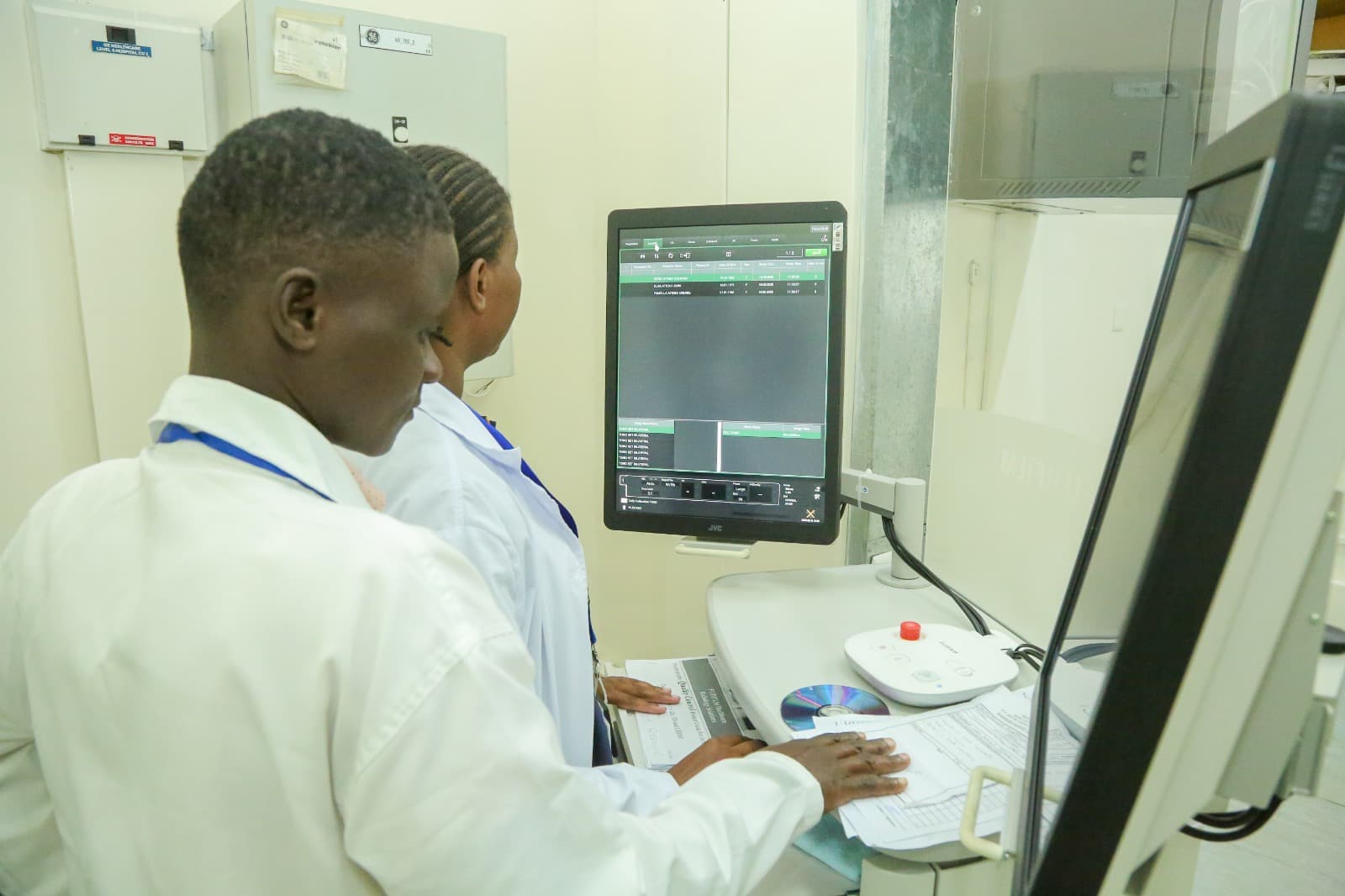We're loading the full news article for you. This includes the article content, images, author information, and related articles.
New artificial intelligence tools are being deployed in Kenya to combat late-stage breast cancer diagnosis, a critical issue that sees nearly 70% of cases detected at advanced stages, promising faster, more accurate, and accessible screening for thousands.

NAIROBI—Kenya is embracing artificial intelligence in the fight against breast cancer, with new locally-focused innovations and the deployment of advanced diagnostic systems aimed at tackling the crisis of late-stage detection. These technological advancements offer a significant opportunity to improve patient outcomes in a country where breast cancer remains the most prevalent cancer and a leading cause of cancer-related deaths.
A major step forward was marked by the recent installation of an AI-enabled digital mammography system at the Jaramogi Oginga Odinga Teaching and Referral Hospital (JOOTRH) in Kisumu. The Amulet Sophinity system integrates AI with 3D imaging technology (tomosynthesis) to produce high-resolution images, enhancing the ability of clinicians to detect subtle tissue abnormalities, especially in dense breast tissue, which is a common challenge with traditional 2D mammography. The Ministry of Health hailed the installation on Monday, 27 October 2025, as a "major milestone in advancing early cancer detection."
This development is critical, as national data indicates that a staggering seven out of ten breast cancer cases in Kenya are diagnosed at advanced stages (III and IV). According to the GLOBOCAN 2022 report, Kenya recorded 7,243 new breast cancer cases and 3,398 related deaths, with late diagnosis being a primary driver of mortality. The delays are fueled by a combination of factors, including a lack of public awareness, the high cost of screening, and limited access to specialized diagnostic services, particularly in rural areas.
For years, the Kenyan healthcare system has grappled with significant barriers to early cancer detection. The cost of a mammogram can range from KSh 2,500 to KSh 8,000, a prohibitive amount for a large portion of the population. Furthermore, a shortage of specialist radiologists means that interpreting results can be a slow process, contributing to delays between initial screening and confirmatory diagnosis. A study at Kenyatta National Hospital highlighted the severe delays, finding a median time of 13 weeks from when a patient first notices symptoms to when they present at the hospital.
In response, the Ministry of Health has launched strategic plans, including the Breast Cancer Screening and Early Diagnosis Action Plan (2021–2025), which aims to shift detection towards earlier, more treatable stages. The government's National Cancer Control Strategy (2023-2027) further supports the integration of innovative technologies to bridge these gaps.
Alongside the adoption of international technology, Kenyan innovators are developing homegrown solutions tailored to local needs. Researchers at Chuka University are working on an automated breast cancer screening system using AI to analyze X-ray images, a project funded by the National Cancer Institute of Kenya and scheduled for completion in September 2025. The goal is to create a tool that can be used in lower-level health facilities, expanding the reach of screening services.
Another notable innovation is 'Mammary Protect,' an AI-enabled portable device developed by young innovators Abdulahi and Bilal Mohammed. Unveiled at the TAMC 2025 Conference, the device is designed for comfortable, at-home monitoring, with images uploaded to an AI for rapid analysis. The developers were motivated by personal loss and the recognition that current diagnostic tools like mammograms are often inaccessible and unaffordable for many Kenyans.
These local AI developments are part of a broader trend in Kenya's health-tech sector. Startups like Neural Labs Africa are already deploying AI platforms to diagnose various diseases, demonstrating the growing capacity within the country to leverage this technology. A landmark study by Penda Health and OpenAI in Nairobi recently showed that an AI co-pilot reduced diagnostic errors in primary care clinics by 16%, proving the real-world potential of AI to enhance clinical decision-making.
The successful deployment of AI in breast cancer diagnosis in Kenya could serve as a model for the wider East Africa region, which faces similar healthcare challenges. By demonstrating the effectiveness of both high-end hospital systems and lower-cost portable solutions, Kenya is building a blueprint for a multi-tiered approach to cancer screening. The lessons learned in training healthcare workers, managing patient data, and navigating regulatory approval will be invaluable for neighboring countries.
While the technology holds immense promise, experts caution that its implementation must be paired with robust community engagement, professional training, and strengthened referral pathways to ensure patients receive timely treatment after diagnosis. The ultimate goal is to transform the grim statistic of late-stage diagnosis and significantly improve survival rates for women across the nation and beyond.
Keep the conversation in one place—threads here stay linked to the story and in the forums.
Sign in to start a discussion
Start a conversation about this story and keep it linked here.
Other hot threads
E-sports and Gaming Community in Kenya
Active 9 months ago
The Role of Technology in Modern Agriculture (AgriTech)
Active 9 months ago
Popular Recreational Activities Across Counties
Active 9 months ago
Investing in Youth Sports Development Programs
Active 9 months ago